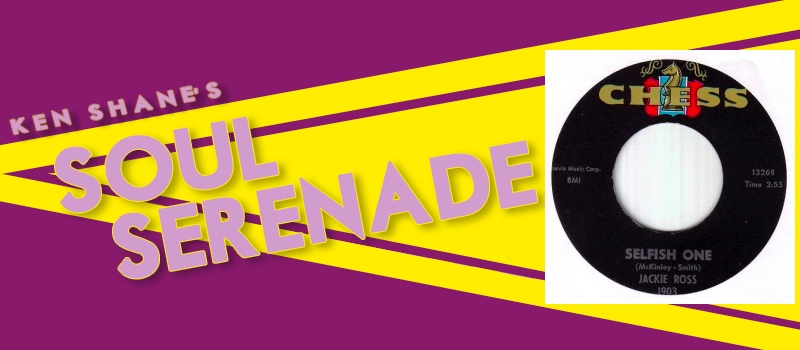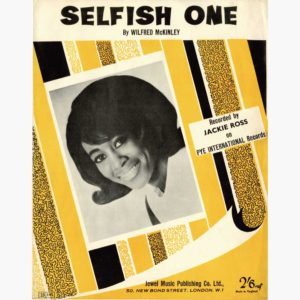 When the Beatles arrived in America in 1964 many dreams of stardom were crushed. The ensuing flood tide known as the British Invasion swept away many artists who had been enjoying success in the ’50s and early ’60s. There were exceptions however, and among those exceptions were the artists who recorded for Motown Records. Motown continued to turn out hit after hit, as if oblivious to the charms of the invaders from across the sea.
When the Beatles arrived in America in 1964 many dreams of stardom were crushed. The ensuing flood tide known as the British Invasion swept away many artists who had been enjoying success in the ’50s and early ’60s. There were exceptions however, and among those exceptions were the artists who recorded for Motown Records. Motown continued to turn out hit after hit, as if oblivious to the charms of the invaders from across the sea.
One of those Motown artists was a great singer by the name of Mary Wells. She was more than just another Motown artist. In many ways she defined the sound of Motown in the early ’60s, scoring with her trio of 1962 hits “The One Who Really Loves You,” “Two Lovers,” and “You Beat Me to the Punch,” followed by her biggest hit, “My Guy,” in 1964. The Smokey Robinson-written song was a #1 hit on the Pop and R&B charts.
There was trouble brewing, however. Wells had signed her Motown contract when she was just 17 years-old. As she became more successful she began to be disenchanted with the royalties she was receiving, and annoyed at the amount of attention that the company was paying to the Supremes at a time when Wells was Motown’s biggest star. Lawyers got involved and there were suits and countersuits. Wells finally prevailed, got a financial settlement, and was freed from her Motown contract. It was all made official in 1965.
Wells signed a contract with 20th Century Records but there was no doubt that her departure from Motown had left a yawning chasm where the sound of her hit records used to be. Not far away, in Chicago, Leonard Chess was running Chess Records, and keeping an eye on what Berry Gordy, Jr. was doing in Detroit. Chess, like Motown, had a stable of artists, producers, and songwriters, and while the Chicago label was turning out some great records, Chess wasn’t having anything like the kind of crossover success that Gordy was having in Detroit.

That’s where Jackie Ross entered the picture. She was from St. Louis but moved to Chicago after the death of her father in 1954. Her first break came when she signed with Sam Cooke’s SAR label and released her first single, “Hard Times,” in 1962. Two years later Ross signed with Chess, and when the world was waiting for a follow-up to “My Guy” that didn’t seem to be coming, Ross stepped into the gap.
The song was called “Selfish One,” and intentionally or not, it was a perfect answer for those wondering where the sound of Mary Wells had gone. The single, with its nod to Nat King Cole’s “Tenderly” in the introduction (Wells’ “My Guy paid similar tribute to “Canadian Sunset”), shot up to #11 on the Billboard Hot 100, and #4 on the Cashbox R&B chart. It wasn’t long before Ross was back in the studio working on an album, and hopefully some follow-up hit singles. Her next single, “I’ve Got the Skill” didn’t get any further than #89, and the following year, “Jerk and Twine” did just a little bit better at #85.
There were more fine singles from Jackie Ross but records like “Haste Makes Waste,” “You Really Know How To Hurt A Girl,” “Take Me For A Little While,” and “We Can Do It” failed to make any dent at all. Ross became unhappy with her situation at Chess, had some words with Leonard Chess, and left the company just a few years after she had arrived.
Ross continued to record into the 1970s for labels like Brunswick Records, and Fountain Productions, which was owned by Jerry Butler, but she never found another “Selfish One.”





Comments